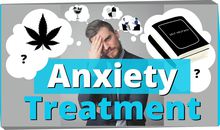Energy management for personal health and well-being
Just last week we stumbled across an interesting outlook on Energy Management. This essentially focuses on how we expel and use our energy. This includes Physical Energy, Mental Energy, Spiritual Energy, Emotional Energy and Social Energy. A key principle in energy management is effective use of time – we have 168 hours in a week and how we use this time can be essential in helping us to maintain good personal well-being.
Energy Management for personal health and well-being.
Recently we have seen an ever increasing number of referrals highlighting stress and anxiety issues arising from hectic work schedules and busy lifestyles. Perhaps heightening our awareness of how we use and recharge our energy systems can help us to become more resilient; but also help us to identify key areas we need to give more attention or time too.
At the end of the day our body as a mechanism requires balance – too much of one thing and not enough of the other, at some point, is going to be debilitative. It’s important to realise that we are not suggesting imbalance is unhealthy, as realistically achieving the perfect balance is impractical, but that prolonged periods of imbalance could be destructive to one of our energy systems.
Before we go any further, think about these questions:
- What prevents you from completing daily tasks at the moment?
- Are you effective at completing daily tasks?
- Is there something you find specifically difficult on a day to day basis?
- Would you say you get things done efficiently?
- What’s your USUAL frame of mind?
- Are there things you would improve?
- Is there anything you would change?
- Do you often feel tired?
If you gave some thought to the above questions and you tried to formulate some sort of response to at least one of them, then there’s a good chance with some tweaks to your day-to-day life you can make positive changes. In fact what you’ve just done by pondering those questions above is use some of your emotional energy. Did you find some of them difficult to answer? Let’s be honest you probably did, most people would find these questions tough to answer clearly and concisely. Now think about how the emotional energy you just used and how the everyday situations were faced with can actually be incredibly emotionally draining without even recognising they are. High intensity emotions can be both positive and negative and include emotions such as excitement, elation, anger and anxiety. Just like high intensity emotions, low intensity emotions can be either positive or negative too and can include calm, serenity, sadness and boredom. If you experience too many of specific type of emotion it can be incredibly taxing on our emotional energy. By developing awareness for the types of emotions we experience, we can become more aware of the things we may need to incorporate into our daily life to replace our emotional energy. Perhaps we experience a lot of stress during our day at work, and a regular yoga practice at the end of the day can help to recharge our emotional energy by focusing on promoting those serene and calming emotions. Improving our balance of emotional energy may also potentially help us to respond to those pressure situations and cope with adversity better.

Now consider your physical energy. Do you recognise the importance of exercise, nutrition, sleep, rest & relaxation and general health and how it can impact our other energy systems? Do you get enough sleep every night? Do you eat a Energy Management Picbalanced healthy diet? Do you allow your body to just rest and relax every now and again? Do you exercise regularly? Some of the above will of course use up physical energy, but some of the above will also replace our physical energy. The importance of considering our physical energy is that without doing exercise or watching what we eat, the implication is that there will come a time when we are likely to fall victim to physical health problems, such as obesity or diabetes. So allow for some time to flex our physical energy system and see what impact it can have on your other systems and your overall personal health and well-being.
Next, let’s ponder how mental energy can affect things. Mental energy can be impacted by factors such as focus, our inner self dialogue, decision making and knowledge. For the purpose of this article let’s focus on focus (pun intended). Most of us think multitasking makes us more efficient when carrying out a given task – wrong! Research shows our brain works much more effectively if our attention is focused on one task at a time up to 120 minutes. Using this pearl of wisdom maybe you can now use less mental energy and complete tasks in less time, resulting in less stress because you no longer are working right up until that deadline.
Moving on, put some thought into your spiritual energy. By spiritual energy I mean what adds purpose to your everyday activities? Think of it this way – you’re in a job you dislike, you have very little motivation to do this job and you find it hard do most tasks. On the other hand you have a fulfilling job with lots of future prospects and it’s a role you’ve always dreamed of being in. Of course the second scenario is going to be much easier because we have some sort of personal gain. Whether it is because the organisations values align with our own or the role gives us a heightened sense of purpose and responsibility; these are the sorts of situations which are great for our spiritual energy, and we can really influence this by developing a greater sense of self awareness. If you find yourself reading this article and looking deeper into yourself, you’re already on the path to developing a greater sense of self.
Finally social energy; put simply this is all about the people we surround ourselves with. Do you respect and trust the people you interact with? Would you say that you have friendships that are healthy and elicit positive emotions or do you have toxic relationships? These are the types of things that impact our social energy – I’m sure we all know a person who we feel great around when we spend time with them; well that emphasises the importance of choosing the right people around us to ensure we don’t exhaust our social energy, which in turn will lead us down the path to isolation, mistrust and loneliness. Have a long think about how your friends and various other relationships impact you and if there’s anything you could change to balance how you expel your social energy?
What exactly is the benefit of considering all the above? Well is can actually help us to develop a greater awareness of where we expel most of our energy and time and the areas that we neglect. It can also help us to realise what’s important and that maybe there are areas that, on reflection, you would like to change. The whole concept of the energy management principle is that we can recognise the areas of strength and areas for improvement and dedicate more of those 168 hours we have a week to specific areas, resultantly making us more adaptable and resilient as human beings. In relation to stress and anxiety it may help us to highlight what areas of our life are the main stressors and allow for us to put a plan in place to change them. However, despite this approach being useful, it’s important to remember that achieving the perfect balance is impossible, so we want to aim for making adaptations to everyday life that create more of a balance.










